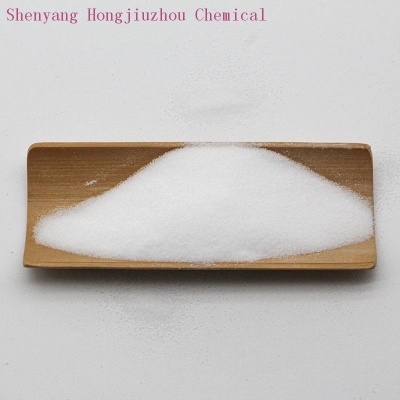-
Categories
-
Pharmaceutical Intermediates
-
Active Pharmaceutical Ingredients
-
Food Additives
- Industrial Coatings
- Agrochemicals
- Dyes and Pigments
- Surfactant
- Flavors and Fragrances
- Chemical Reagents
- Catalyst and Auxiliary
- Natural Products
- Inorganic Chemistry
-
Organic Chemistry
-
Biochemical Engineering
- Analytical Chemistry
- Cosmetic Ingredient
-
Pharmaceutical Intermediates
Promotion
ECHEMI Mall
Wholesale
Weekly Price
Exhibition
News
-
Trade Service
The food processing and quality safety research team ofLinyi University has made important progress in the mechanism of the quality and flavor formation of rose sauce
.
Published three related research papers in a row in the international journal LWT-Food Science and Technology in the field of food (region 1, Top journal )
.
Graduate student Xia Aonan is the first author, Professor Liu Yunguo is the corresponding author, and team member Dr.
Tang Xiaojuan participated in the research work
.
.
Published three related research papers in a row in the international journal LWT-Food Science and Technology in the field of food (region 1, Top journal )
.
Graduate student Xia Aonan is the first author, Professor Liu Yunguo is the corresponding author, and team member Dr.
Tang Xiaojuan participated in the research work
.
Ao-Nan Xia, Xian-Shui Meng, Xiao-Juan Tang, Yan-Zhen Zhang, Sheng-Ming Lei, Yun-Guo Liu.
Probiotic and related properties of a novel lactic acid bacteria strain isolated from fermented rose jam.
LWT- Food Science and Technology, 2021, 136, part 2: 110327.
Probiotic and related properties of a novel lactic acid bacteria strain isolated from fermented rose jam.
LWT- Food Science and Technology, 2021, 136, part 2: 110327.
Ao-Nan Xia, Xiao-Juan Tang, Gui-Zhi Dong, Sheng-Ming Lei, Yun-Guo Liu, Xin-Min Tian.
Quality assessment of fermented rose jams based on physicochemical properties, HS-GC-MS and HS-GC-IMS.
LWT- Food Science and Technology, 2021, 151(4): 112153.
Quality assessment of fermented rose jams based on physicochemical properties, HS-GC-MS and HS-GC-IMS.
LWT- Food Science and Technology, 2021, 151(4): 112153.
Ao-Nan Xia, Ling-Xiao Liu, Xiao-Juan Tang, Sheng-Ming Lei, Xian-Shui Meng, Yun-Guo Liu.
Dynamics of microbial communities, physicochemical factors and flavor in rose jam during fermentation.
LWT- Food Science and Technology, 2022, 155, 112920.
Dynamics of microbial communities, physicochemical factors and flavor in rose jam during fermentation.
LWT- Food Science and Technology, 2022, 155, 112920.
Rose sauce is a traditional fermented food in China, which is rich in probiotic resources and functional active ingredients
.
More than 70 strains of probiotics were screened from rose sauce.
Among them, the strain Pediococcus pentosus MP13 has good tolerance to low pH, high bile salts, simulated artificial gastrointestinal fluid and high osmotic pressure environment, and can improve the total amount of rose sauce after fermentation.
The content of antioxidant substances such as phenol and total flavonoids significantly improves product quality
.
.
More than 70 strains of probiotics were screened from rose sauce.
Among them, the strain Pediococcus pentosus MP13 has good tolerance to low pH, high bile salts, simulated artificial gastrointestinal fluid and high osmotic pressure environment, and can improve the total amount of rose sauce after fermentation.
The content of antioxidant substances such as phenol and total flavonoids significantly improves product quality
.
Based on high-throughput sequencing technology, it was found that the dominant bacterial genera after fermentation of rose sauce were: Streptophyta, Pantoea, Rosenbergiella and Pediococcus, and the dominant fungal genera were: Alternaria, Podosphaera, Botryotinia and Cladosporium
.
Based on GC-MS and GC-IMS technology combined with PCA analysis, the flavor fingerprint of rose sauce was established, and it was found that alcohols, esters and aldehydes were the main flavor compounds of rose sauce
.
The correlation between flavor formation and microbial community succession was studied, which laid the foundation for the quality control of rose sauce
.
Through LC-ESI-MS analysis, it was found that the main component of anthocyanins in rose sauce was cyanidin, and the main flavonoids were quercetin
.
The results show that HS-GC-IMS technology can identify the volatile flavor substances in rose sauce, which can be used for quality evaluation and identification of rose sauce
.
.
Based on GC-MS and GC-IMS technology combined with PCA analysis, the flavor fingerprint of rose sauce was established, and it was found that alcohols, esters and aldehydes were the main flavor compounds of rose sauce
.
The correlation between flavor formation and microbial community succession was studied, which laid the foundation for the quality control of rose sauce
.
Through LC-ESI-MS analysis, it was found that the main component of anthocyanins in rose sauce was cyanidin, and the main flavonoids were quercetin
.
The results show that HS-GC-IMS technology can identify the volatile flavor substances in rose sauce, which can be used for quality evaluation and identification of rose sauce
.
Full text link:
Probiotic and related properties of a novel lactic acid bacteria strain isolated from fermented rose jam.
https://doi.
org/10.
1016/j.
lwt.
2020.
110327
https://doi.
org/10.
1016/j.
lwt.
2020.
110327
Quality assessment of fermented rose jams based on physicochemical properties, HS-GC-MS and HS-GC-IMS.
https://doi.
org/10.
1016/j.
lwt.
2021.
112153
https://doi.
org/10.
1016/j.
lwt.
2021.
112153
Dynamics of microbial communities, physicochemical factors and flavor in rose jam during fermentation.
https://doi.
org/10.
1016/j.
lwt.
2021.
112920
https://doi.
org/10.
1016/j.
lwt.
2021.
112920







